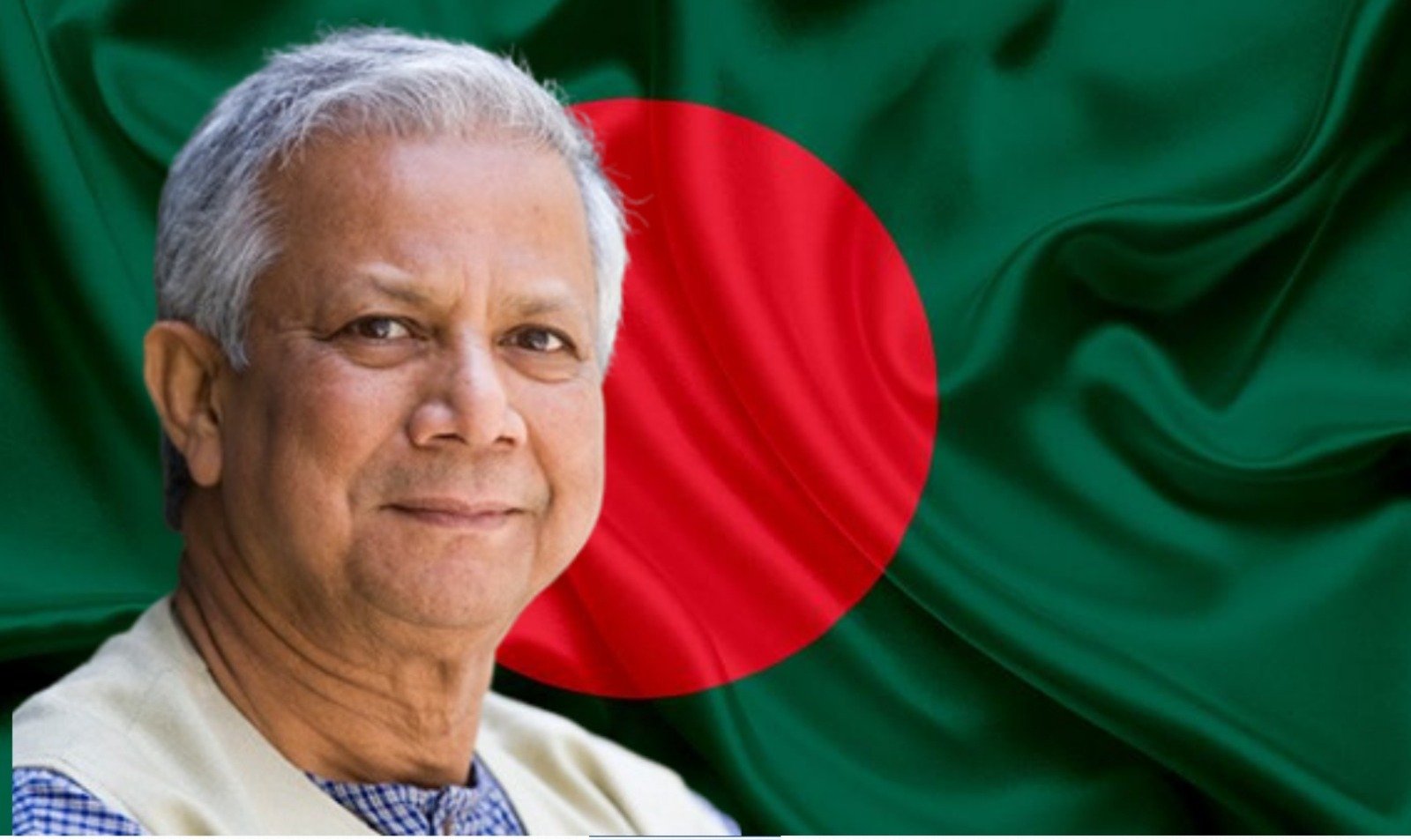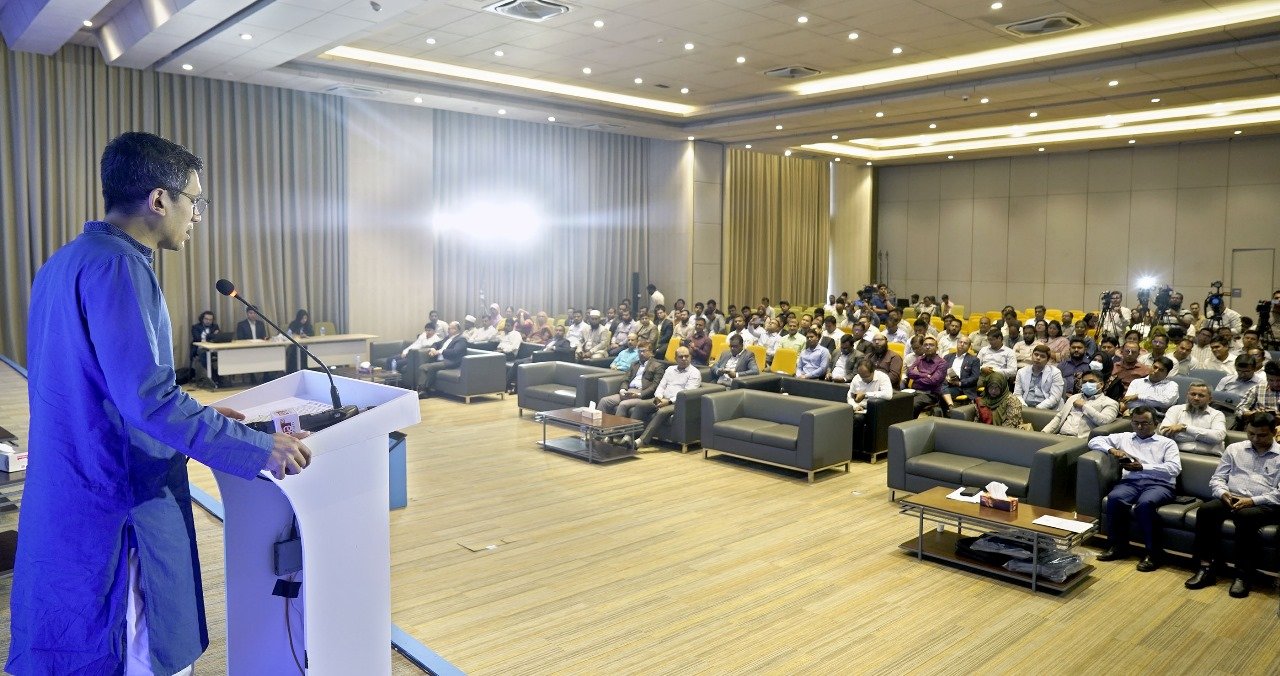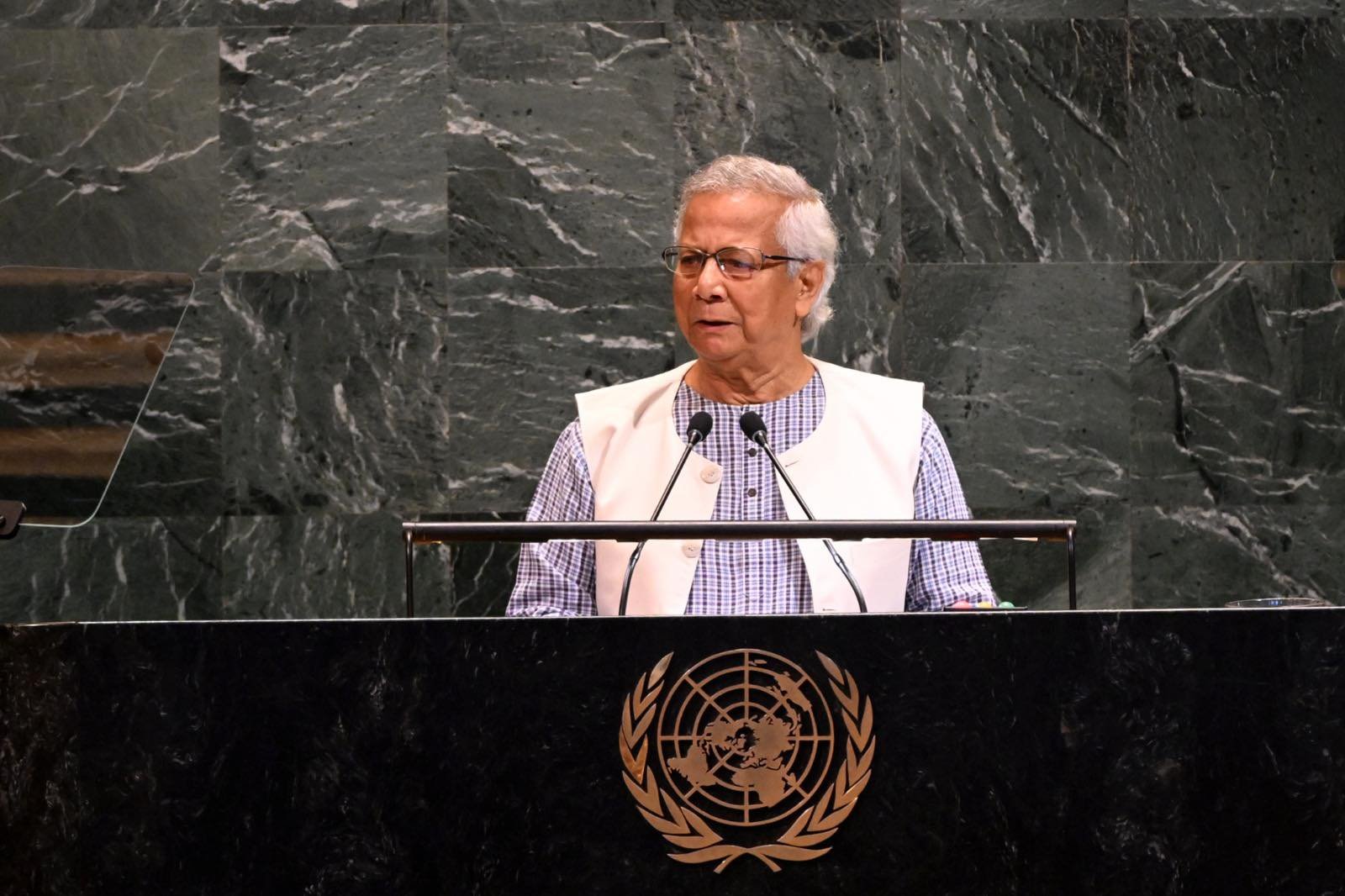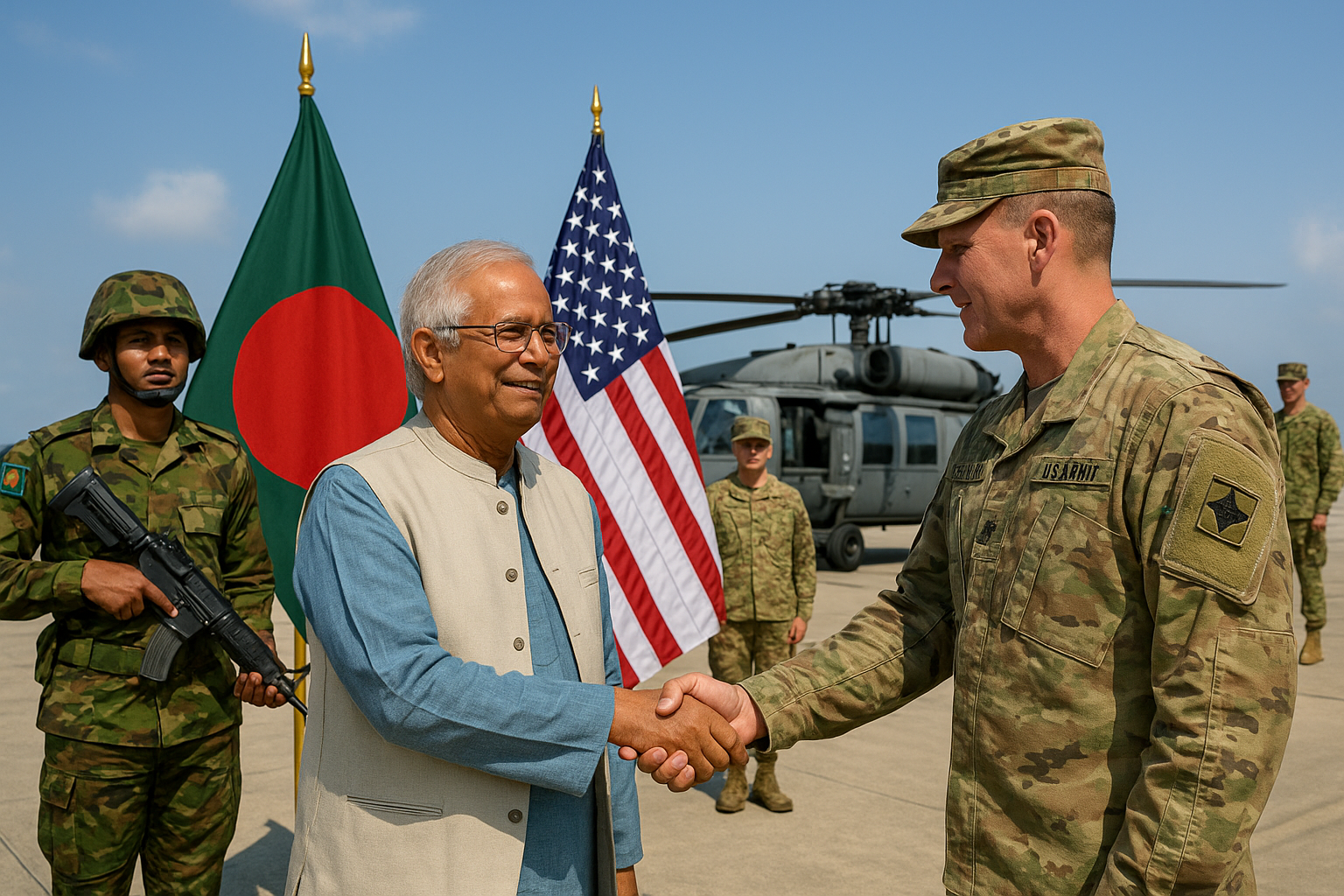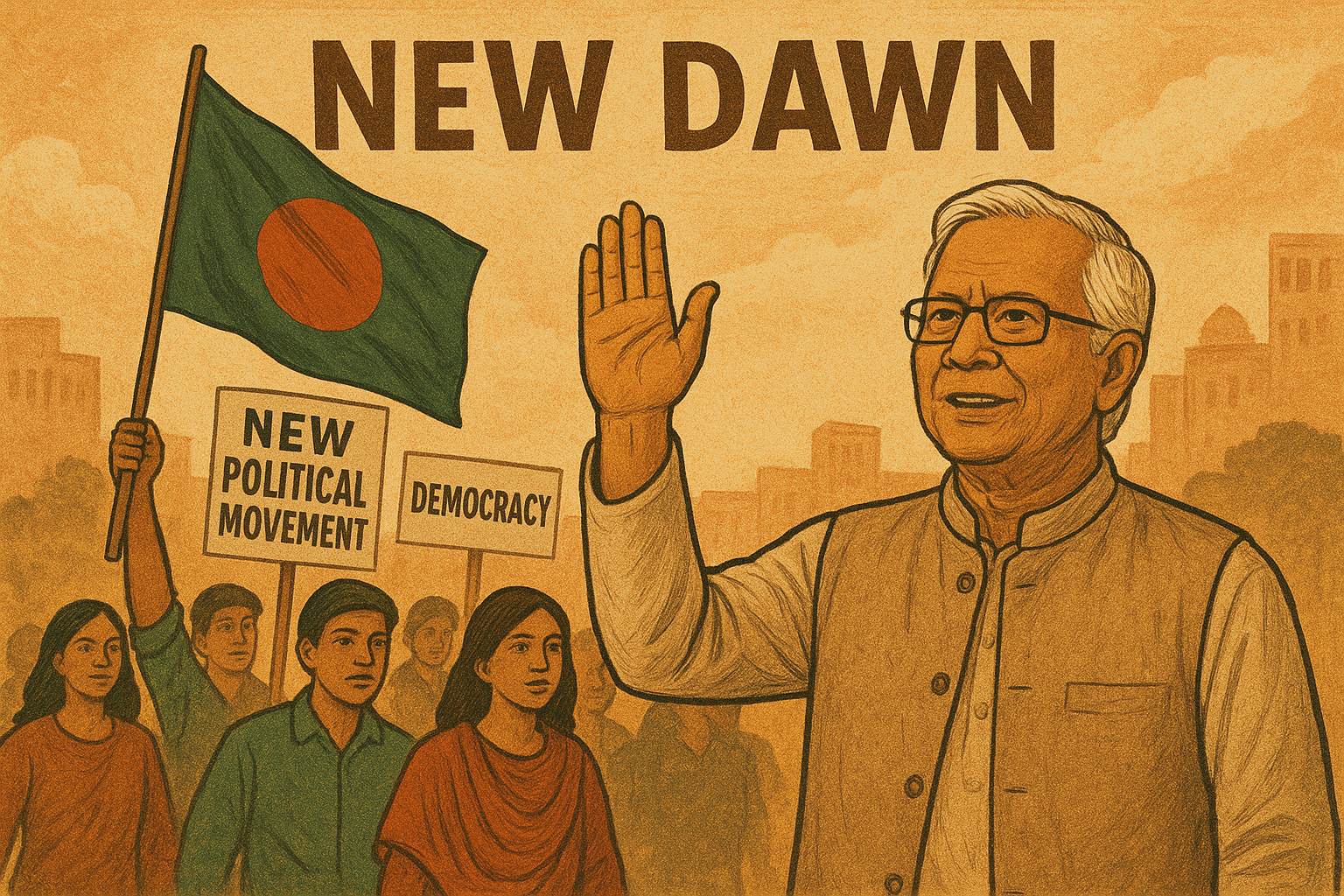"After the Political Shift in Bangladesh on August 5, 2024, a Caretaker Government Was Formed Under Nobel Laureate Economist Dr. Muhammad Yunus"
[Dhaka, Bangladesh – May 23, 2025]
Following a major political transition in Bangladesh on August 5, 2024, Nobel Prize-winning economist Dr. Muhammad Yunus assumed leadership of a caretaker government. From the very beginning, the interim government faced numerous complications, which after eight months culminated in a significant conflict between Chief Adviser Dr. Yunus and the country’s Army Chief, General Waqar Zaman.
The conflict stemmed from several sensitive issues, including national elections, the proposed humanitarian corridor with Myanmar, and matters related to national security. Dr. Yunus, after initiating certain reforms, proposed holding elections by mid-2026. However, General Waqar Zaman wants national elections to be held by December of this year. Regarding the corridor with Myanmar, the army chief said that any decision on this must be taken by an elected government in the interest of national security, adding, “We are not considering the corridor at this moment.” Meanwhile, speculation has begun to circulate regarding the possible resignation of Dr. Yunus.
Nobel Laureate Dr. Yunus in a Deepening Crisis
Dr. Muhammad Yunus, Bangladesh’s Nobel Prize-winning economist, now finds himself in a serious crisis due to ongoing political unrest, administrative pressure, and military interference. He had expressed a willingness to take on national responsibility during the political crisis of 2007–08, but with a single condition—that he must be allowed to work independently. His reason was simple: he did not want to be used in the dirty games of politics. Unfortunately, in the realm of power politics, ethics often take a back seat to self-interest.
Honorable Yunus vs. the Brutality of Politics
The day Dr. Yunus stepped forward to address the national crisis, certain political factions began opposing him. Although he had long been a source of inspiration for many within the BNP, when the possibility of making him head of government emerged, those same groups withdrew their support. Even though his picture was seen in the home of Mirza Fakhrul Islam Alamgir, when it came time for real decisions, politics revealed its true face—support follows convenience.
Dr. Yunus's Vision vs. the Harsh Realities of Power
Dr. Yunus never entered politics for power. His sole purpose was to lead the country out of crisis through effective leadership. But the political reality of power is harsh. Honest individuals are often trapped in webs of manipulation and forced into a corner. In this context, his goodwill has not proven particularly useful.
Reliable sources claim Dr. Yunus may resign soon. He had hoped to organize a neutral election by June, but recent military intervention and administrative obstacles have left him disheartened. He has always believed that a country can be guided through honesty and a spirit of service, but under the current circumstances, that vision now seems nearly impossible.
The Central Question: Will We Let Politics Sacrifice a Nobel Laureate?
Now the nation must confront a critical question—will we allow a Nobel Prize-winning, globally respected individual to become a casualty of politics? Or will we stand beside him and ensure the triumph of integrity?
Our Call to Action:
-
Stand by Dr. Yunus’s vision, integrity, and transparency.
-
Raise your voice against undemocratic interference, especially the actions of Waqar’s forces.
-
Demand a democratic process and honest leadership.
The nation now faces a major challenge—how to support an honest, compassionate, and visionary leader. Dr. Yunus never belonged to any political party; he was a friend of the people. Losing him would mean losing yet another rare opportunity.
[Author – Redwan Hossain, Former Civil Servant of Bangladesh]


